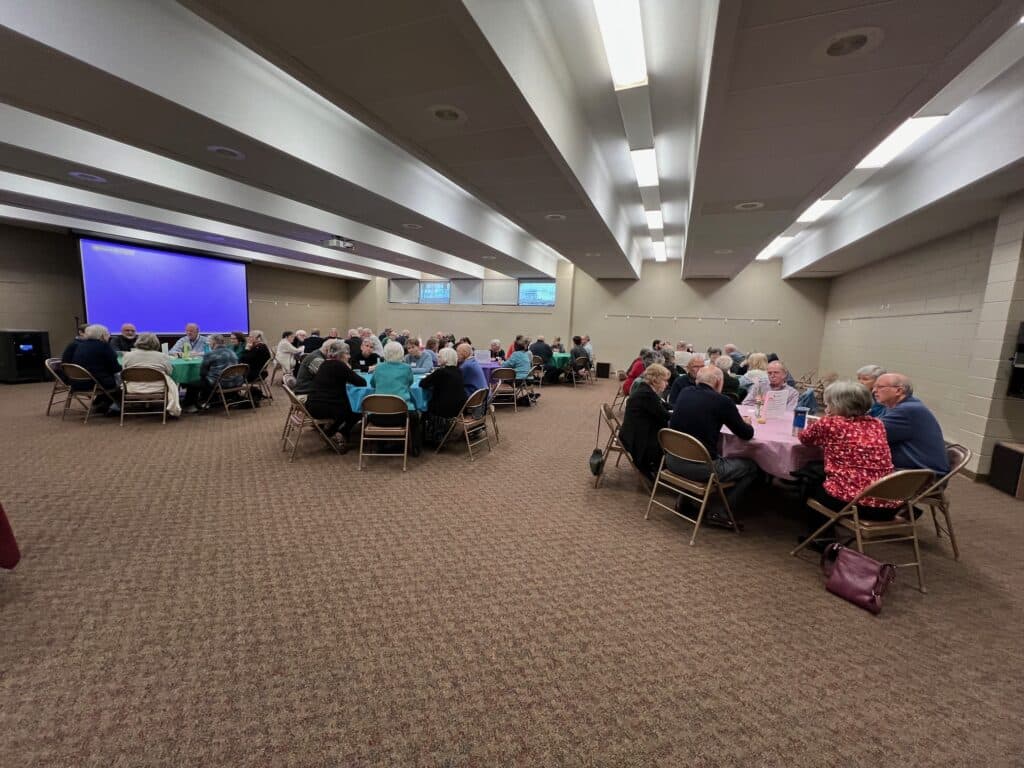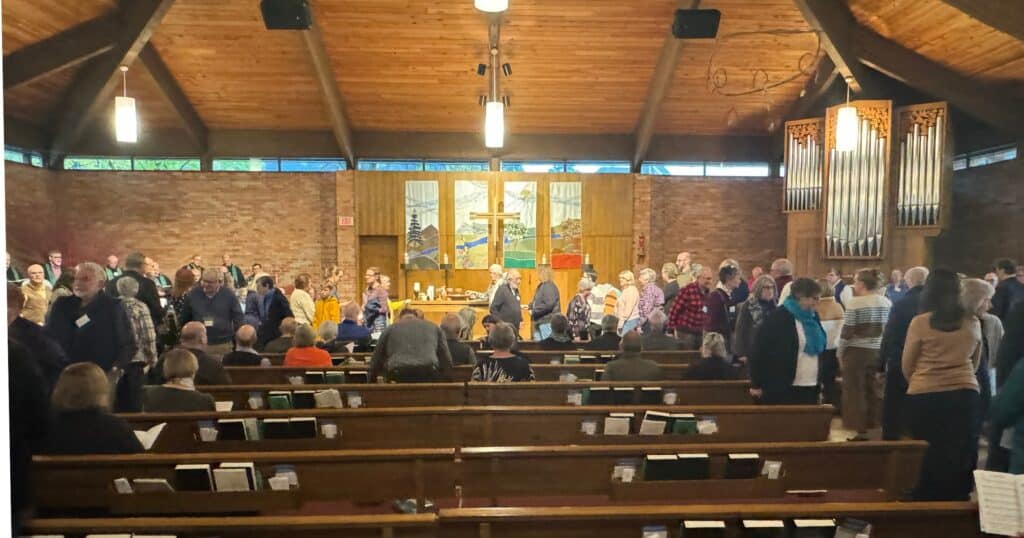‘Transformed by the journey’: Mayflower Church in Minneapolis to take on new name Creekside UCC
On Sunday, Mayflower Community Congregational UCC uplifted gratitude for the ways that the Mayflower name has served the congregation for 100 years.
“People are grateful for what the name has meant for them and their families,” said the Rev. Sarah Campbell, team lead pastor at Mayflower. “It has been the name connected to births, weddings, a columbarium. People talk about how they associate the name Mayflower with their first time going to a PFLAG group or addiction recovery group. Kids associate it with amazing experiences growing up with lock-ins and service trips. We’re also known by this name as a justice church around the state – the brand is important.”
But the Mayflower name also holds complicated historical ties – ones that the church has spent the past two years exploring as one piece of their commitment to reckoning with racial justice.
Through a vote on Nov. 3, the congregation affirmed it will officially change its name to Creekside United Church of Christ in the coming months.
What’s in a Name
Kate Andrews van Horne has served as leader of Mayflower’s What’s in a Name committee – the group that has facilitated congregational visioning and engagement around the name change – and she highlighted the importance of finding a name that better aligns with the church’s mission.

“We can’t ignore the fact that a name like Mayflower is associated with historical issues around colonization, genocide, and other forms of oppression,” said Andrews van Horne. “We have said in our mission and vision that we are this welcoming congregation, we believe in radical hospitality, we’re walking the Jesus path of love and kindness and justice and thinking about what that looks like in 2024 and beyond. If we say all these things, it’s incumbent upon us to think about how others see us, our space, our church, and our work.”
What started as a list of 100 possible names in September was reduced to ten and, through further spiritual discernment as a congregation, Creekside clearly arose as the top option.
The motion to change the name passed with 85% approval.
“In talking to the people who did not want to change the name, I heard that when they saw the big vote total, that helped them let go and say, ‘This is what the community wants,’” Andrews van Horne said. “They trusted the process, their friends, the community members, and that we’re moving in the right direction.”

Campbell, who said she offered pastoral care and prophetic care throughout the process, feels relieved that there have been no indications that the name change might cause people to leave or reduce their support of Mayflower. In fact, she has witnessed the congregation thriving with growing attendance in Sunday worship and robust new membership classes.
Letting go, living into a new name
The name change will be a process for the congregation, both communally and logistically.
“We feel joyful about this,” said Andrews van Horne, “It was a heavy conversation, but people are excited to think about all the ways we can connect Creekside to all of the things we loved the name Mayflower. There are new metaphors we can come up with.”
The name “Creekside” emphasizes earth connection and acknowledges the landscape of the nearby Minnehaha Creek that pours directly into the Mississippi River, Campbell said, adding that it signals a move toward getting more deeply connected to the church’s place and land – “claiming the Northland and leaving New England.”

While church leadership plans to begin working on legal and branding updates early in 2025, the congregation will engage in a grieving and letting go ritual through worship. The idea to intentionally grieve the change was introduced by the Rev. Jim Bear Jacobs, co-director for racial justice of the Minnesota Council of Churches and a member of the Stockbridge-Munsee Mohican Nation, who preached at Mayflower in February.
‘The beginning of something’
In 2025, the church will celebrate its 100-year anniversary with the new name that they will seek to live into for the next hundred years.
“Mostly it feels like the beginning of something – now we’re going to be able to start our reparative and reckoning work,” Campbell reflected.
“It felt like along the way we’ve been asking these questions of each other and listening deeply to ourselves, each other and to what God is calling us to do,” Andrews van Horne said. “Now as we go out and seek partnerships and ally-ships with organizations and people, we can say we had this two-year intentional discernment, and we felt it was important to take ownership of the impact of our name and its meaning and change it.”
Campbell, a fourth-generation Congregationalist, hopes that sharing Mayflower’s path to a name change might inspire and offer a blueprint for other churches with names like Mayflower, Plymouth, and Colonial to embark on similar reflection.
“We’ve been transformed by this journey,” Campbell said. “We have people who are waiting to join to see if we would change the name, and I think moving into the future this is a very hopeful thing. I feel strongly that there may be a revival.”
Content on ucc.org is copyrighted by the National Setting of the United Church of Christ and may be only shared according to the guidelines outlined here.
Related News
A Moment of Silence
The weekend news was alarming. Two students shot and killed with 9 injured at Brown University...
Read MoreIn hope-filled worship service, UCC and United Church of Canada celebrate full communion past and future
On Saturday, Dec. 13, many from the United Church of Christ (UCC) and the United Church of...
Read More‘A Gift of God to the World:’ Christmas greetings from the General Minister and President
As Christmas quickly approaches, UCC General Minister and President/CEO the Rev. Karen Georgia...
Read More


